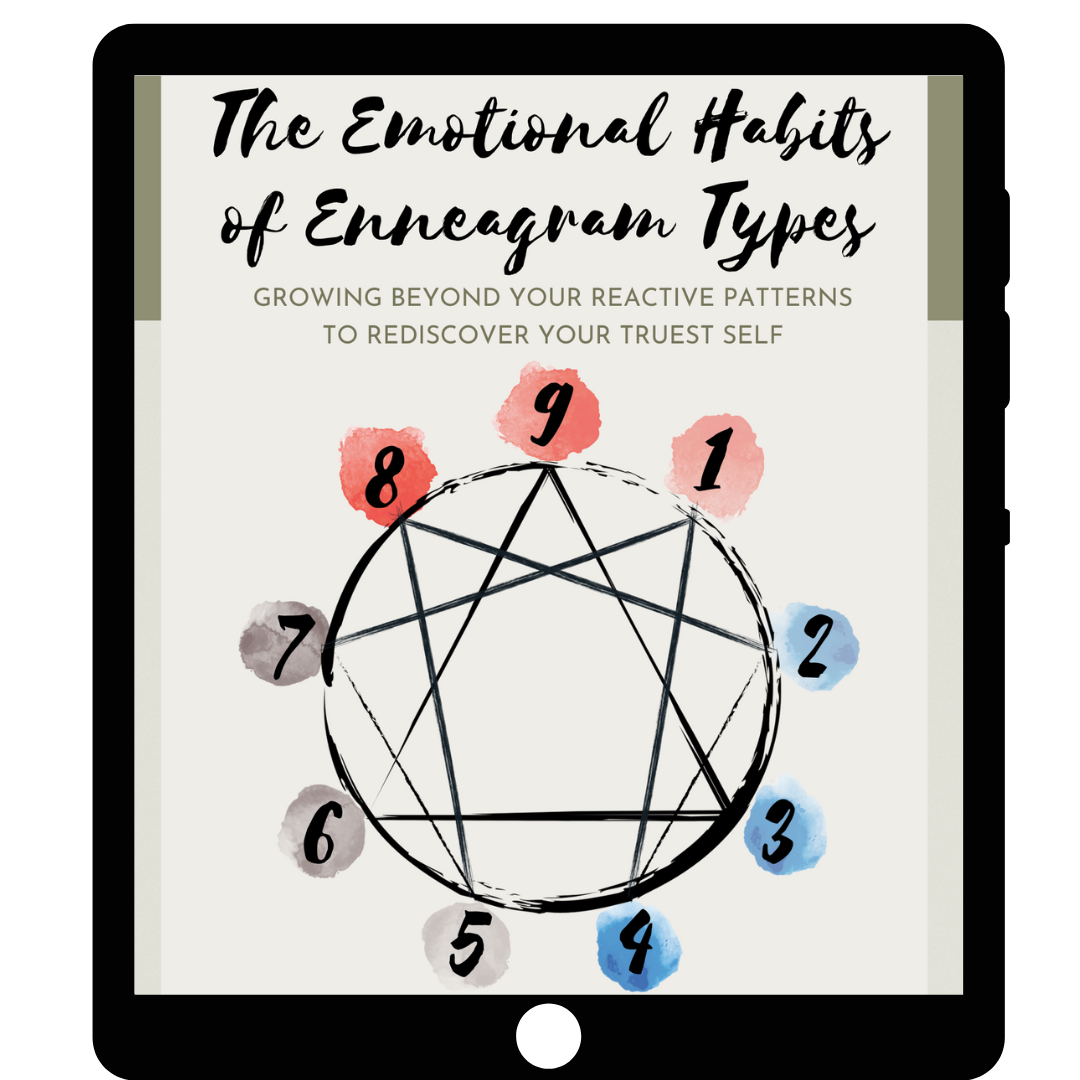I speak as if I’m a natural green thumb. I’m not. I’m genuinely surprised that my plants are still alive. I believe they lived this long DESPITE me, not BECAUSE of me.
At first, I got plants for my office as a way of bringing in more greenery into my space. (As a Highly Sensitive Person, I am easily impacted by my physical environment.)
Never did I imagine that tending to plants would a fantastic way of taming my autopilot tendencies to:
Be perfectionistic
Be anxious about what’s not going well or might go wrong
Overwork
Have difficulty sitting still
Live disconnected from the present
Seek intensity and novelty
Here are three things plants taught me about how to do my life differently.
Imperfect, but nonetheless worthy
No two plants are the same. No two leaves are the same. More often than not, you see asymmetry and imperfections of color, size, and shape.
Go outside and look at the trees, bushes, and flowers - if you’re looking for it, you will find blemishes, broken branches, and ways it could be “better”.
…So what? Plants are still beautiful and valuable as they are, and rarely do we think about how they’re so even though they’re imperfect.
You probably didn’t even notice those plants’ disfigurations all that much until you were prompted to look for them. You go about your day having enjoyed them, as if it’s not a problem, because it really isn’t.
Why do we place so much emphasis on ourselves and others as if perfection is what makes us worthy and acceptable?
See yourself as a plant. It is what it is, and it’s already beautiful.
Here’s a mantra for you:
I am how I am, and I am already good.
Are your needs met?
I get the main point of the idiom, “Bloom where you’re planted.” You’re to take advantage of the opportunities that your present circumstances provide and learn to be grateful.
That’s definitely an important skill to have in life, but as with all adages, there are limitations.
If you have an autopilot that makes things seem worse than they actually are, and if being critical and unhappy is your baseline, do practice blooming where you’re planted.
But useful also is the skill of attuning to yourself and knowing what works best for YOU. What works for one plant doesn’t work for another unless they have similar needs.
Some plants need direct lighting; others would shrivel if they’re in the same conditions. Some plants need frequent watering; others are susceptible to growing root rot (RIP my olive tree).
We are all individual and unique. Sure, we have some universal needs like food and sleep we share in common, but even in those things we have differences is how much or in what way.
Know your own distinct needs and take steps to meet them, rather than judging yourself for not “growing” or “performing” in the way someone else is. Both of you are neither inherently better or worse; y’all are who you are, you’re both worthy, and each of you have specific needs to flourish well.
Know thyself. Know thy needs.
Do an audit of what are your specific needs in these arenas:
Physical
Emotional
Relational
Environmental
Intellectual
Professional
Spiritual
Financial
What steps will you take this week to get these needs met?
Blame the bug, not the plant
Sometimes a plant languishes or is stunted in its growth because of pests that extract its valuable nutrients. When that happens, we are ready to see the pest (not the plant) as a problem, remove the parasites, and give the plant some good TLC so it can recover.
The same ought to be done about ourselves in some of our relationships, because there ARE people in our lives who operate like parasites.
In my therapy practice, I often work with people who are in one-sided relationships with parents, partners, friends, or coworkers who seek a “host” to exploit, meeting their own needs at the expense of my clients’. We explore the topics of emotional abuse, manipulation, power dynamics, resentment, dependency, and codependency.
Sometimes this exploitation is deliberate - the “parasite” consciously takes advantage of the other person or is vindictive, cruel, or petty with utter disregard for the recipients’ wellbeing. As Henry Cloud describes in his book, “Necessary Endings,” these are the “Evil Persons” who we must limit their access to us ASAP.
Then there are those who are accidentally exploitative as a byproduct of some other pattern. For example, when a person doesn’t take responsibility for meeting their own needs or see themselves as helpless, they create a power vacuum for someone else to step in for them.
(Imagine the kind of relationship between one housemate who doesn’t clean up after themselves and another who just can’t stand the mess. Or the imbalanced relationship between someone who cries at the thought of figuring out the internet and a family member whose heart string is pulled and calls the internet company for them.)
Are you a “host”?
The party who steps in often has a soft spot for others who are struggling, even if the pain is of their own making. Those who have a higher likelihood of being a “host” include:
Those who are conscientious, responsible, empathic types
Empaths, Highly Sensitive Persons
Enneagram 1s, 2s, 4s, 9s, and some other subtypes (all for different reasons)
Oldest siblings (especially women)
Children of immigrants
Those who are in caregiving roles or professions (teachers, therapists, nurses, etc.)
Those who live as if they’re hosts often:
Have a hard time knowing what they want and need (and ignore them)
Find it difficult to say “no”
Is scared of conflict or asking for help
Overly focus on what other people are needing
Feel guilty about taking care of themselves
Eventually, because the “hosts” have their own valid yet unmet needs, usually these imbalanced relationships leave them feeling fatigued, depleted, and resentful.
(In this case, resentment is very GOOD, as it signals the need for boundaries, reciprocity, and care.)
We ought not to judge the depleted host for being tired, but rather remove the exploitative agents. If you’re having a difficult time flourishing where you are, consider whether it might be because someone else is sapping your energy, time, resources, and money.
Remove the parasites ASAP (don’t let them grow), clear your environment of toxicity, and nourish yourself with what you specifically need.
(BTW - just to be clear, this is NOT about judging others for being LESS THAN, but rather holding them accountable for their own needs and actions. You providing them nourishment that they need to give to themselves is NOT helping them, but is ENABLING them in being dependent upon hosts. Win-lose relationships are LOSE-LOSE.)
I highly recommend you grab a copy of Henry Cloud’s book, Necessary Endings, so you know how to tend to yourself well by pruning away things that sap your strength and eliminating harmful influences.
How will you set boundaries with others this week?
What are your Enneagram type's emotional habits?
Grab this free guide that shows you how to grow beyond the patterns that keep you stuck!
Don't know your Enneagram type?
Find yours here!
© Copyright 2022 Joanne B. Kim. All rights reserved.
JOANNE B. KIM, LMFT
Joanne is a Licensed Marriage & Family Therapist and Certified Brainspotting Practitioner in San Jose, CA. She helps people EXHAUSTED by anxiety, shame, and an allergic reaction to anger create VIBRANT relationships where they matter, too.
Many of her clients are:
(1) the highly responsible, conscientious, and empathic types
(2) Enneagram Type Ones, Twos, Fours, or Nines
(3) Highly Sensitive Persons (HSPs)
The most common words spoken by those who’ve sat with Joanne:
“I thought it was just me. I’m NOT crazy!”
“I can finally figure out what to do with all these feelings!”



































“The Mask”, featuring Jim Carrey, is a great movie that illustrates what the Enneagram types are like: masks (or personas) we don until we become so “fused” with them that we forget our true selves. Read this blog to learn about your mask!